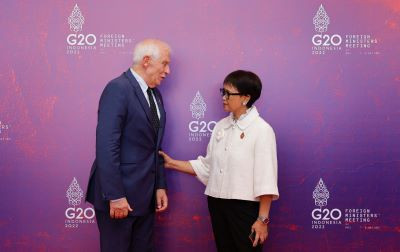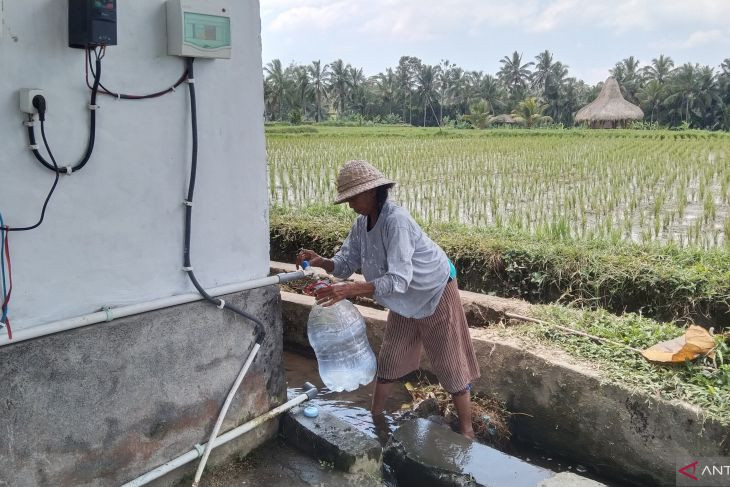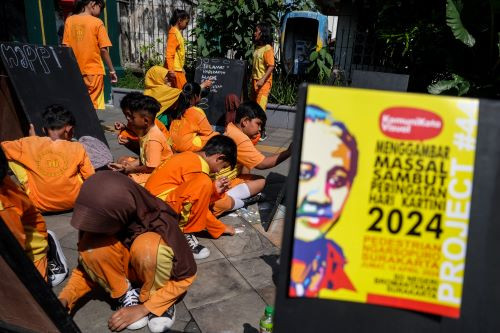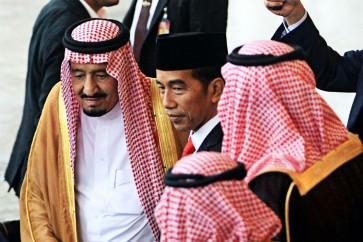Anticipating return of bilateralism
Change Size
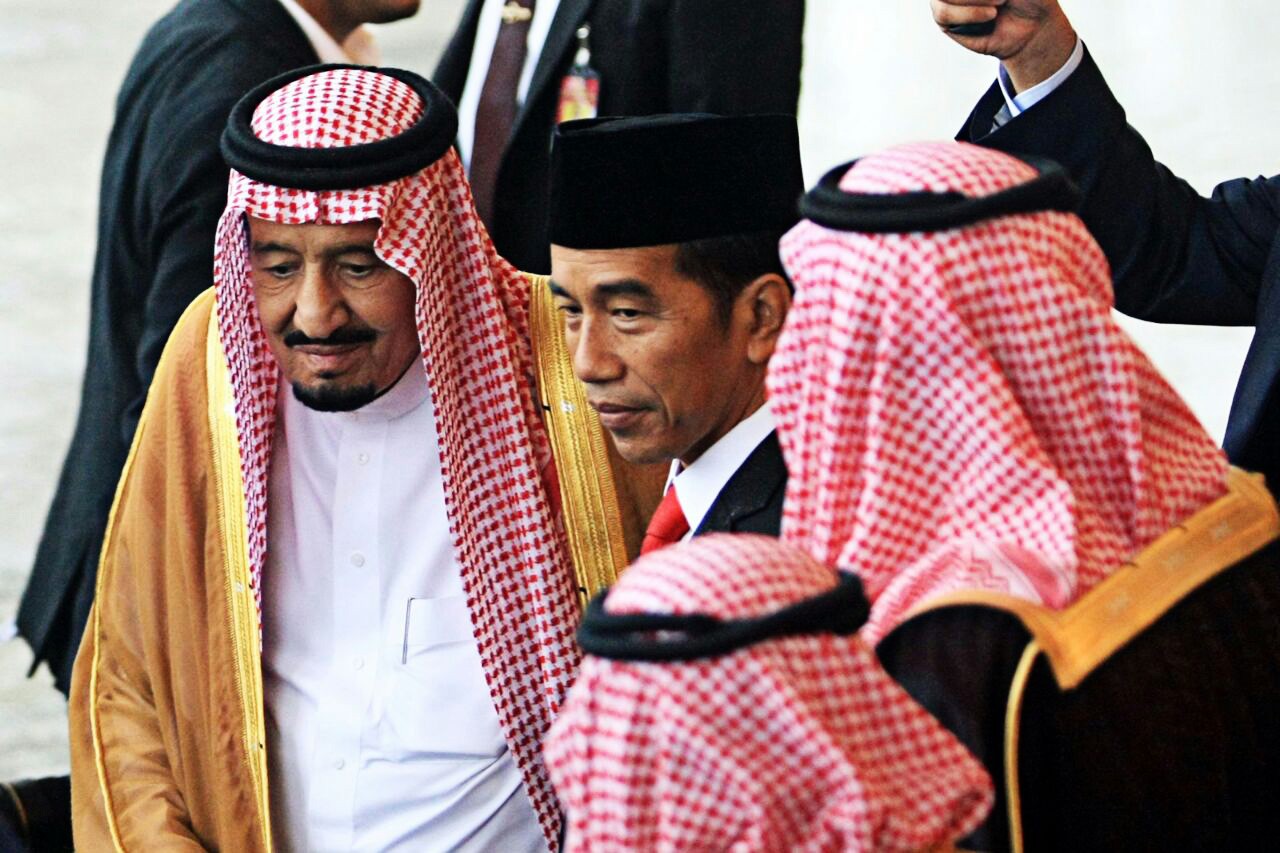 Closer ties: President Joko "Jokowi" Widodo escorts King Salman bin Abdulaziz al Saud of Saudi Arabia for a bilateral meeting at the Bogor Presidential Palace in Bogor, West Java, on Wednesday. (Media Indonesia/Pool/Panca Syurkani)
Closer ties: President Joko "Jokowi" Widodo escorts King Salman bin Abdulaziz al Saud of Saudi Arabia for a bilateral meeting at the Bogor Presidential Palace in Bogor, West Java, on Wednesday. (Media Indonesia/Pool/Panca Syurkani)
A
year full of bilateral engagements. This is a simple phrase to reflect the agenda of President Joko “Jokowi” Widodo at the end of 2016 and the beginning of 2017.
The President closed his 2016 foreign policy agenda by visiting Iran and India and opened his 2017 international moves by visiting Australia before hosting a historic and entertaining visit by King Salman bin Abdulaziz Al Saud of Saudi Arabia a couple of weeks ago. French President Francois Hollande also visited Jakarta — the first visit by a French president in more than 30 years. This is a prime time for bilateralism.
The President’s decision to engage in bilateral engagements somehow anticipated recent political developments in several key states that will likely lead to more bilateral arrangements rather than multilateral ones.
The decision of the United Kingdom to exit the European Union and the decision of the new United States President, Donald Trump, to keep out of the TransPacific Partnership process imply that multilateral arrangements are no longer the preferred options for the key states.
Just recently, the G20 Finance Ministers’ Meeting in Germany failed to secure a free trade commitment, which is usually highlighted by the multilateral forum, following the US’ opposition.
In the past, many perceived bilateral arrangements as ineffective ways to achieve economic cooperation because they take more time, are costly and involve the complex interests of different states. No wonder that many governments have moved toward multilateral arrangements, perceived to be more effective for dealing with various interests of economic cooperation.
For emerging economies like Indonesia’s, the return of bilateralism can pose a challenge if they are not ready to deal with powerhouses through one-on-one processes. An imbalanced negotiation capacity combined with asymmetric data and information could limit the bargaining positions of emerging economies versus major powers.




